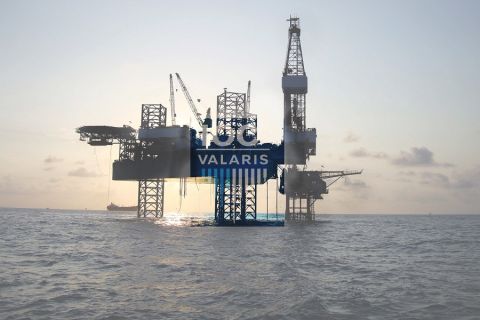The following anecdote was recently retailed in The New York Times, but bears repeating here: "The titans of Russia’s energy industry gathered around an enormous map showing the route of a proposed new pipeline in Siberia. It would cost billions and had been years in the planning. After listening to their presentation, President Vladimir V. Putin frowned, got up from his chair, whipped out a felt pen and redrew the map right in front of the embarrassed executives, who quickly agreed that he was right. "The performance, which was carried on state television in 2006, was obviously stage managed, but there was nothing artificial about its point. It was a typical performance for a leader who has shown an uncanny mastery of the economics, politics, and even technical details of the energy business that goes well beyond a politician taking an interest in an important national industry," wrote Andrew E. Kramer. The tale is also an important back story to a whole series of Russo-centric energy market developments, including extreme turbulence in BP’s troubled joint ventures there; the cutoff of natural gas supplies to Ukraine and Europe that left people shivering in the Balkans and Eastern Europe; and even the brief war recently fought between Russia And Georgia, which saw Russian tanks scurrying back and forth over buried portions of the Bazu-Erzurum pipeline just outside its borders. What it means, say experts, is that decision making in global energy markets is being governed by considerations of political economy rather than simple profit taking. Whether referring to Russia, Iran, Venezuela, or Saudi Arabia, these are countries where political stability is being bought by dint of a certain rate of economic growth and measure of cash infusions almost solely dependent on petroleum revenues. Keeping that flow going is of paramount importance, even if that means beggaring your neighbor. If you loved your country and found yourself its leader, you might be tempted to take many of the same steps. As Andrei Tsygankov wrote recently in the Asia Times, "The Kremlin assumes that the alternative to its energy-based strategy is a decline relative to existing and rising powers, which will lead to the degeneration of Russia into a geographically truncated, under-populated and resource-depleted nation that accepts political demands from others." Today, notes Tsygankov, Russia’s population continues to shrink, its infrastructure deteriorate, and its military lack proper training. To avoid further decline, the goal is to develop the capacity to shape world energy markets and then leverage the ensuing riches to diversify the economy. Put another way, why, if you felt your country was overly dependent on foreign oil, and you had the world’s most powerful military at your command, you might be tempted to unseat some especially egregious example of a petro despot as a means to ensuring affordable supply. But if you do, be sure to secure the population before you declare victory. Yet just as success in Iraq has proved more complex and difficult than originally supposed, the road ahead for Russia and other countries wielding the energy card won’t be nearly as smooth as once may have been thought. The collapse of the global financial credit system means that the era of easy money is over for many people, including leaders of petro states. Experts say what lies ahead is a period of extreme price volatility, as overreaction by desperate political leaders to any hint of rising demand will inevitably lead to over-supply, causing prices to again fall. For the free-market economies, it will take managers with the steely nerves of those at Exxon Mobil to navigate the turbulent waters. And for the smaller independents, would it be so bad if western banks, now partially nationalized, suddenly found it in themselves to give producers all due help needed to effectively meet the energy needs of the western democracies?
Recommended Reading
Producers Trim 2024 Hedges Amid Bullish Oil Prices, M&A
2024-06-14 - Meanwhile, gas-weighted players are benefitting from solid hedge books planned ahead of price uncertainty.
Solaris Stock Jumps 40% On $200MM Acquisition of Distributed Power Provider
2024-07-11 - With the acquisition of distributed power provider Mobile Energy Rentals, oilfield services player Solaris sees opportunity to grow in industries outside of the oil patch—data centers, in particular.
Earthstone’s Anderson Relaunches, Seeks Conventional
2024-05-24 - The new E&P PetroPeak Energy will also take a look at unconventional property in the Eagle Ford and Austin Chalk.
ISS, Glass Lewis Push Crescent, SilverBow Shareholders to Vote for Merger
2024-07-19 - Proxy Advisory firms Institutional Shareholder Services and Glass Lewis also recommend that Crescent Energy shareholders vote for the approval of the issuance of shares on Crescent Class A common stock.
Valaris’ 1Q Sets Positive Tone for Offshore
2024-05-06 - Coming out of first-quarter 2024, drilling contractor Valaris expects a sustained upcycle for the offshore drilling industry supported by demand growth, OPEC+ production cuts and supportive commodity prices.





